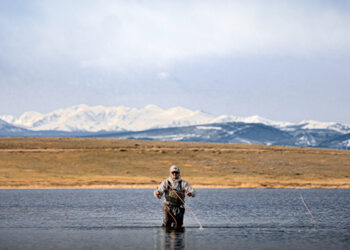The campus rec professional career pipeline was once a rite of passage. From student worker to graduate assistant to full-time professional staff working up the ladder, this chain populated resumes. However, less people are following this formula leading to rec leaders needing to pivot from traditional career paths.
Mark Hoying, the director of Campus Recreation at the University of Dayton (UD), attributes this disruption to the COVID-19 pandemic. When hiring picked up after the pandemic, candidate pools were bigger and more competitive. This momentum was short-lived, and Hoying noted the difficulties in hiring he began experiencing the year after.
“We started to see those experienced candidates or graduate assistants weren’t there anymore,” explained Hoying. “Coordinators didn’t have the great professional development the way they did before the pandemic. People were looking for work and mentorship opportunities, but then it really dried up.”
Many departments are facing challenges of vacancies and staff turnover which require unique hiring and retention solutions. UD has employed many which has led to the department being fully staffed. Perhaps the biggest key to this success for Hoying is being open to candidates from outside the industry.
“I don’t know if those candidates would have made it through five or six years ago because they didn’t have that trademark graduate assistant experience,” remarked Hoying. “But the energy, new ideas and approach to problems they’ve brought has been refreshing, to say the least.”
Another area Hoying noted improvement is better articulating the expectations and responsibilities of open positions. Those familiar with campus rec understand implications of certain roles, but someone from outside the industry may not. Making sure job postings use clear and accessible language lays a sound foundation for the entire process.
EXTRA CREDIT: Here are five best practices for recruiting talent.
Similarly, another strategy Hoying employs is allowing potential candidates to set up a video chat with him to discuss any questions they may have. These meetings can happen at any point during the hiring process even before the candidate officially submits an application.
Hoying welcomes any questions during these meetings. Some may be hesitant to ask about the salary, work expectations or surrounding environment for fear of being presumptuous, but he welcomes these questions.
“Finding out all these things about the job gives them a chance to connect with us,” explained Hoying. “Our associate director and I both offer these sessions and have found great success and appreciation for them. We know it might result in not as many people applying, but if they leave that meeting and say, ‘this isn’t for me,’ what a great thing that is for everyone.”
Since hiring can cause a lot of frustration, perhaps the best advice is to remain positive through the challenges. Similar to how Hoying sees the benefits in candidate withdrawals, Andrew Bruni, the associate director at CENTERS, LLC at the University of Missouri-St. Louis, sees opportunity with rotating student-staff leaders. He explained how he used to hire freshmen and expected they work in Campus Recreation up to eight semesters throughout their college career. Now, students are pursuing more career development ventures like internships, and they don’t have time to work at the Recreation and Wellness Center.
“It’s harder to find engaged leaders in regard to long-term retention,” said Bruni. “It’s required us to rethink our informal mentorship program and think about how we’re continuing to develop students. We’ve had to accelerate it a little bit. It’s exactly what we want to be able to do for them and provide a great experience.”
EXTRA CREDIT: How to create a world-class talent acquisition process.
While ideally every student would be engaged and want to pursue leadership as a staff member, it’s likely not possible. Bruni explained that accepting this and learning how to work with different students is a necessity for those working with them.
“There’s been an influx of students who aren’t necessarily the level of engaged we’ve usually seen,” explained Bruni. “They’re more focusing on meeting the need for the job and money. They’re not necessarily caring about the things a really engaged student may be looking for. So, we have to evaluate how we’re providing them growth and development without forcing them into it.”
However, for the students who are engaged, creating space to have meaningful relationships with them as a supervisor was a big piece of advice. Intentional mentorship adds more value and enjoyment from their working experience.
“The cornerstone for student staff in campus recreation is forming those strong personal connections with the professional staff,” said Bruni. “It’s making sure they feel supported and knowing them as individuals. Continuing to do that gets harder because the demands for our time make it easy to forget the importance of pouring into our student staff working for us.”
EXTRA CREDIT: The benefits of a mentorship program in campus rec.
Similarly, Nick Madsen, the executive director of Campus Recreation at Samford University, emphasized the connection with students as a highlight for his professional staff. “The students are really why we’re here doing this job,” he said. “They really get to know our students, and we get to see what their passions are. We’re all here for students because we want to see them thrive.”
Remembering the heart of campus recreation can be valuable when trying to fill positions or when navigating other big changes. For example, Madsen has recently led the process of opening Samford’s new 160,000-square-foot Seibert Hall facility and the creation of five new staff positions. Embracing change and meeting the needs of the people you want to hire were what led to his success.
“As a veteran in this industry, you have to get to know younger individuals and get to their level,” explained Madsen. “That was difficult for me because what worked back in my day may have changed in how I connect with individuals today. We have to see what works for them which will affect how we manage them. Change happens, and we all struggle with it. I do too, but we have to learn to change with the times and see what’s out there to help make our staff successful.”
Madsen noted campus rec professionals’ tendency to move around or move up in the industry which can create challenging vacancies. However, the community of like-minded professionals dedicated to serving students in higher education can create valuable connections.
“There’s a great community of individuals which I found when I was doing my hiring,” said Madsen. “I was blessed with a lot of great candidates, and for the first time in my 20 years at Samford, I struggled with two positions. You have to go with who fits you as an individual and your university. It was awesome having two great candidates, but it sucked having to give the news to the person we didn’t go with. But, I told them, you’re going to be successful wherever you go.”










